Now accepting S-I-R Host Applications for 2025-2026.
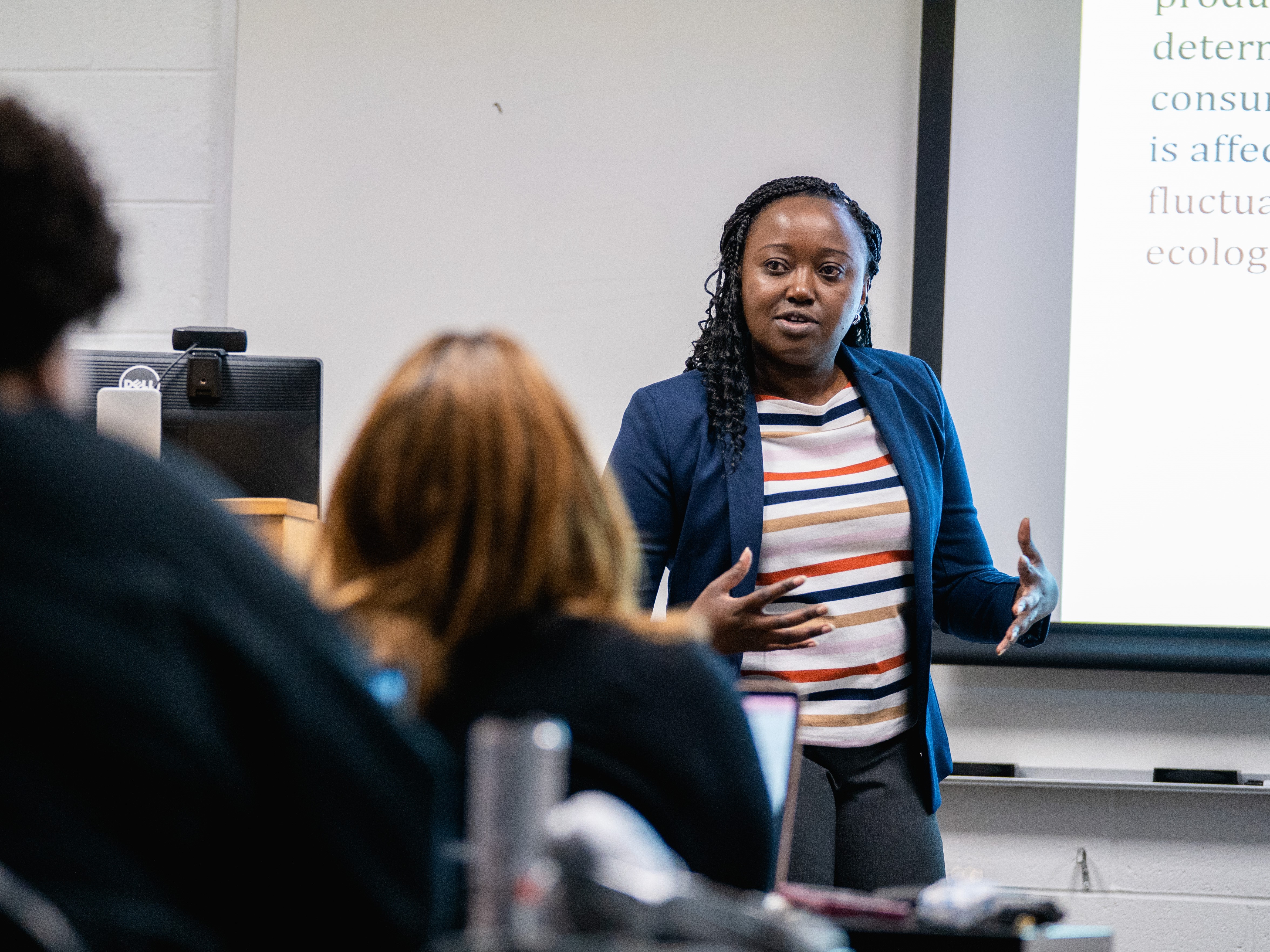
The Fulbright Scholar-in-Residence (S-I-R) Program is a unique Fulbright Scholar Program initiative that is specifically driven by the goals of U.S. institutions of higher education to enhance internationalization efforts on their campuses. Through the S-I-R Program, institutions host a scholar from outside of the United States for a semester or full academic year to teach courses, assist in curriculum development, guest lecture, develop study abroad/exchange partnerships and engage with the campus and the local community. S-I-Rs work across departments and curricula in a variety of ways to widely enhance or expand an existing international program, develop new world area studies programs, add an international dimension to existing coursework or provide an opportunity for U.S. students to learn about a particular world region or country.
The institution benefits from the expertise provided, and the Scholar attains experience in the U.S. higher education arena. Host institutions will mobilize community partners to provide the Visiting Scholar with opportunities to participate in speaking engagements, community meetings, and other grassroots activities. Through these activities the institution can diversify the experiences of – and build goodwill among – the community. The S-I-R Program promotes cultural and intellectual diversity among the institution and the wider community.
S-I-R applicant institutions may and are encouraged to propose topics in the full range of academic fields to suit their institution’s internationalization needs.
Webinars and Resources
Webinar Schedule
- May 3, 2024 at 2pm ET: Scholar-in-Residence 2025-2026 Application Q&A – Last Call
Recorded Webinars
- Fulbright S-I-R Program Overview and Application Walkthrough
- S-I-R Host Impact Panel - How can an S-I-R Exchange Contribute to your Institution's Internationalization Efforts and Benefit your Campus Community?
- S-I-R Host Impact Panel - S-I-R Opportunities for Community Colleges and Minority Serving Institutions
View our S-I-R webinar archive from past years' competitions.
Flyers
Contact the S-I-R Team:
A semester to full academic year.
The Fulbright Scholar-in-Residence host institution application to host during the 2025-26 academic year is open and will close on June 3, 2024 at 5pm ET. Please navigate to the "Application Steps" tab to access the application link.
Timeline

1. Expression of Interest and Proposal Development
October - December 2023
- Complete the Interest Survey to join our mailing list.
- Schedule an advising session and connect with S-I-R Program staff to learn more about how to develop your proposal, identify a suitable scholar, and complete the application.
- Reach out to your institution’s leadership to coordinate effort across campus and garner endorsement from community partners.
2. Participate in a Webinar
November 2023 - May 2024
Webinars are a great tool to learn about the program, discover tips and tricks for submitting a strong application, and to get inspired by stories from past hosts.
See Overview tab for the webinar schedule.
3. Complete and Submit Application
Apply here: S-I-R Host Application
Application deadline: June 3, 2024 at 5pm ET
4. Application Review
Early Fall 2024
IIE notifies applicant institutions of the selection decisions. Department of State and the Fulbright Foreign Scholarship Board review recommended proposals and Fulbright Commissions and Public Affairs Sections of US Embassies abroad recruit and/or review prospective scholars.
Spring 2025
IIE issues grant materials to selected scholars and assists host institutions with preparing to host their Scholar-in-Residence during the 2025-2026 academic year.
5. Welcome Scholar to Campus
August 2025 - January 2026
Selected Scholars and Hosts will be invited to participate in a virtual pre-departure orientation and training sessions in June 2025 prior to Scholar arrivals in August 2025 for Fall semester and full Academic Year grants. Scholars will arrive in January 2026 for Spring semester grants.
Eligibility
- Applications are open to all accredited U.S. institutions of higher education. Non-U.S. institutions are ineligible. The institution must be in compliance with Title VI of the Civil Rights Act of 1964 requiring nondiscrimination in federally assisted programs.
- Foreign scholars are eligible to serve as Scholars-in-Residence. U.S. citizens and permanent residents are ineligible. However, applications directly from foreign scholars will not be accepted. An application must be submitted by an authorized U.S. institution of higher education employee.
- Scholar teaching responsibilities are limited to a maximum of two courses per semester.
- Proposals shall not authorize engagement in pastoral, missionary, or other professional religious activities.
- Proposals shall not authorize engagement in activities for which a license to practice medicine or nursing is required.
- Preference will be given to institutions that have not recently hosted a Fulbright Scholar-in-Residence (within the previous two years).
- Proposals will be accepted from single institutions as well as jointly from two institutions
Application Resources
The competition for the 2025-26 Scholar-in-Residence (S-I-R) Program is now open and will close on June 3, 2024, at 5pm ET.
Apply here: S-I-R Host Application
Information for Named or Recruited S-I-R Candidates
- Africa, Sub-Saharan
Angola
Benin
Botswana
Burkina Faso
Cameroon
Cote d’Ivoire
Democratic Republic
of Congo
Eswatini
Ethiopia
Ghana
Guinea
Kenya
Madagascar
Malawi
MaliMauritius
Mozambique
Namibia
Niger
Nigeria
Rwanda
Senegal
Sierra Leone
South Africa
Tanzania
Togo
Uganda
Zambia
Zimbabwe
- East Asia and the Pacific
Australia
Brunei
Cambodia
Indonesia
Japan
Laos
Malaysia
Mongolia
New Zealand
Philippines
Singapore
South Korea
South Pacific (Fiji, Kiribati, Nauru, Tonga, Tuvalu, Papua New Guinea, Solomon Islands, Vanuatu, Samoa, Marshall Islands, Micronesia, Palau)
Taiwan
Thailand
Timor-Leste
Vietnam- Europe and Eurasia
Albania
Andorra
Armenia
Austria
Azerbaijan
Belarus
Belgium
Bosnia-Herzegovina
Bulgaria
Croatia
Cyprus
Czech Republic
Denmark
Estonia
Finland
France
Georgia
Germany
Greece
Hungary
Iceland
Ireland
Italy
Kosovo
Latvia
Lithuania
Luxembourg
Malta
Moldova
Montenegro
Netherlands
North Macedonia
Norway
Poland
Portugal
Romania
Serbia
Slovak Republic
Slovenia
Spain
Sweden
Switzerland
Turkey
Ukraine
United Kingdom- Middle East and North Africa
Algeria
Bahrain
Egypt
Israel
Iraq
Jordan
Kuwait
LebanonLibya
Morocco
Palestinian Territories
Qatar
Saudi Arabia
Tunisia
United Arab Emirates- South and Central Asia
Bangladesh
India
Kazakhstan
Kyrgyz Republic
NepalPakistan
Sri Lanka
Tajikistan
Turkmenistan
Uzbekistan- Western Hemisphere
Argentina
Bahamas
Barbados and the Eastern Caribbean
Belize
Bolivia
Brazil
Canada
Chile
Colombia
Costa Rica
Dominican Republic
Ecuador
El Salvador
GuatemalaGuyana
Haiti
Honduras
Jamaica
Mexico
Nicaragua
Panama
Paraguay
Peru
Suriname
Trinidad/Tobago
Uruguay
Venezuela
Note: Geographical listings in this publication are a matter of administrative convenience and are not intended to imply a United States government position on the legal status of the areas listed.
2025-2026 Application Guidelines
Tips for Crafting a Competitive Application
The Fulbright Program is committed to partnering with U.S. institutions of higher education to bolster their internationalization efforts. Fulbright's Scholar-in-Residence program connects a diverse range of U.S. institutions with scholars from other countries for an exchange experience that benefits the host and scholar alike. Institutions interested in applying to host a foreign scholar through the Fulbright Scholar-in-Residence Program are encouraged to follow these five tips to ensure a strong proposal.
- INTERNATIONALIZATION IMPACT: The S-I-R program is driven by your institution's needs and interests. Demonstrate how your S-I-R program will contribute to key internationalization goals at your institution, no matter your current level of international engagement. Teaching is central to the S-I-R Program. Link your scholar's activities and expertise to your proposed teaching program and its impact on student learning as well as any relevant measures related to curriculum development, broad cross-campus engagement, community outreach/engagement, establishing an exchange partnership, or other indicators. Envision the impact you aspire to reach by hosting a scholar. Enlist the support of your institution's leadership to show commitment to your proposal beyond the hosting department and to raise the profile and impact of the S-I-R at your institution. Address in your proposal what types of future communication and follow-on projects you would like to ensure are in place after the scholar returns to their home country.
- DIVERSITY, EQUITY, INCLUSION & ACCESSIBILITY: The Fulbright Program strives to ensure that it represents U.S. society and societies abroad and demonstrates diversity and inclusion in different ways. In the case of the Fulbright Scholar-in-Residence Program, whether your institution is considered a diverse institution or not, show how your S-I-R will engage with diverse students, faculty, and staff. Demonstrate how your S-I-R will gain an understanding of diversity through interaction with diverse citizens in your local community.
- SCHOLAR: If you are naming a specific scholar, be sure to explain why you have selected this individual and in what capacity you know this individual. If you are requesting assistance with recruitment, select up to two countries within one world region and include a clear rationale for selecting these countries. Tie the specialization of your chosen or desired scholar to the activities you detail in your proposal and to your institution's internationalization goals.
- SUPPORT: Detail your plan for curriculum, registration, workspace, and classroom requirements, ensuring your plan adheres to the recommended teaching load of one to two courses per semester. Share your plan to involve and support your scholar in your campus community, including assigning both a faculty and staff point person to address concerns throughout the S-I-R's program. Think creatively about the support that your institution might be able to give in-kind in terms of airport transit and local transportation, housing, and/or meal plans.
- COMMUNITY: Detail campus or community resources the scholar would benefit from or contribute to, whether personally or professionally (campus libraries/archives, labs, training opportunities, working groups, local conferences, etc.). Collect letters from local organizations (e.g. local libraries, cultural centers, local media, or schools/school districts) that pledge to work with you and support the scholar during their exchange. Share your strategy for getting the word out about your S-I-R's visit to your campus and local community, whether through events, press releases, social media, or other means. Some community engagement plans may not be fully formed at the time of application but please detail creatively activities that would likely happen during the scholar’s visit and any contacts that your institution could mobilize to add to the scholar’s community engagement program.
Review Criteria
The Fulbright Scholar-in-Residence Program supports activities and projects that recognize and promote the critical relationship between educational exchange and international understanding, in addition to the intellectual merit of the proposals. Reviewers consider the basic objectives of the Fulbright Scholar-in-Residence Program, evaluating applications on the following criteria:
Potential Impact, Outcomes, and Benefits to the Host Institution and Community
- The application provides a clear view of the institution’s current and proposed internationalization efforts and details how the Scholar-in-Residence contributes to the institution’s short- and long-term internationalization goals
- The application shows considerable academic pursuits within and beyond the hosting department, plans for other campus activities, and engagement with the local community
- The application shares a plan for the sustainable impact of the S-I-R’s presence beyond the period of the exchange visit
- The proposed academic and teaching program of the scholar is feasible
- The applicant institution demonstrates capacity and sufficient resources to support the scholar’s activities on campus and in the larger community
- The institution shows commitment to the Scholar-in-Residence with adequate plans for oversight
Diversity, Equity, Inclusion, & Accessibility
- The proposal demonstrates service and attention to diversity, equity, inclusion, and accessibility in terms of the S-I-R’s academic activities, interaction with diverse students, faculty, and staff, and engagement with the diverse surrounding community. The S-I-R is able to experience the diversity of America and U.S. institutions of higher education first-hand.
- The topic(s) covered by the S-I-R’s proposed activities address DEIA topics and engage their host’s audiences in important ways.
- Applications from colleges and universities that serve minority student populations and/or those that have infrequently hosted foreign scholars are highly valued in the S-I-R program competition and are strongly encouraged to apply.
Previous Fulbright Scholar-in-Residence Awards to Institutions
- Preference will be given to applicants who have not recently received a Scholar-in-Residence award.
- Application should provide a compelling justification for previous or repeat Scholar-in-Residence placements, if applicable
Regarding the Individual Scholar
- Named Scholar Proposals:
- Proposed scholar’s academic credentials and standing are appropriate for the proposed courses and other educational activities. The scholar has sufficient teaching and lecturing experience.
- Proposed scholar’s English language skills are sufficient for lecturing at the collegiate level and to allow for participation in discussions with a broad range of students and in community events.
- Application demonstrates a clear rationale for the need for the programmatic activities to be completed with this specified scholar and home country.
- Proposed scholar has not previously received Fulbright grants, taught, studied, conducted research, or worked in the United States for an extended period of time within the past five years.*
- Recruitment of Scholar Proposals:
- Application profile for a scholar demonstrates a clear rationale for the specified world region and countries.
- Scholar Profile includes details of the discipline(s) or field(s) of expertise, theoretical orientation (if applicable), and subjects/issues about which the institution expects the scholar to be particularly knowledgeable.
- The scholar’s desired qualifications including academic degree level and years of teaching experience listed are suitable for the proposed activities.
- Application includes a detailed or at least general description of course(s) the prospective scholar will teach and other academic activities expected.
*The policies of the FFSB require that preference is given to scholars who have not previously received Fulbright grants, taught, studied, conducted research, or worked in the United States for an extended period of time within the past five years.
- Fulbright Scholar-in-Residence Alumni Stories
- Image
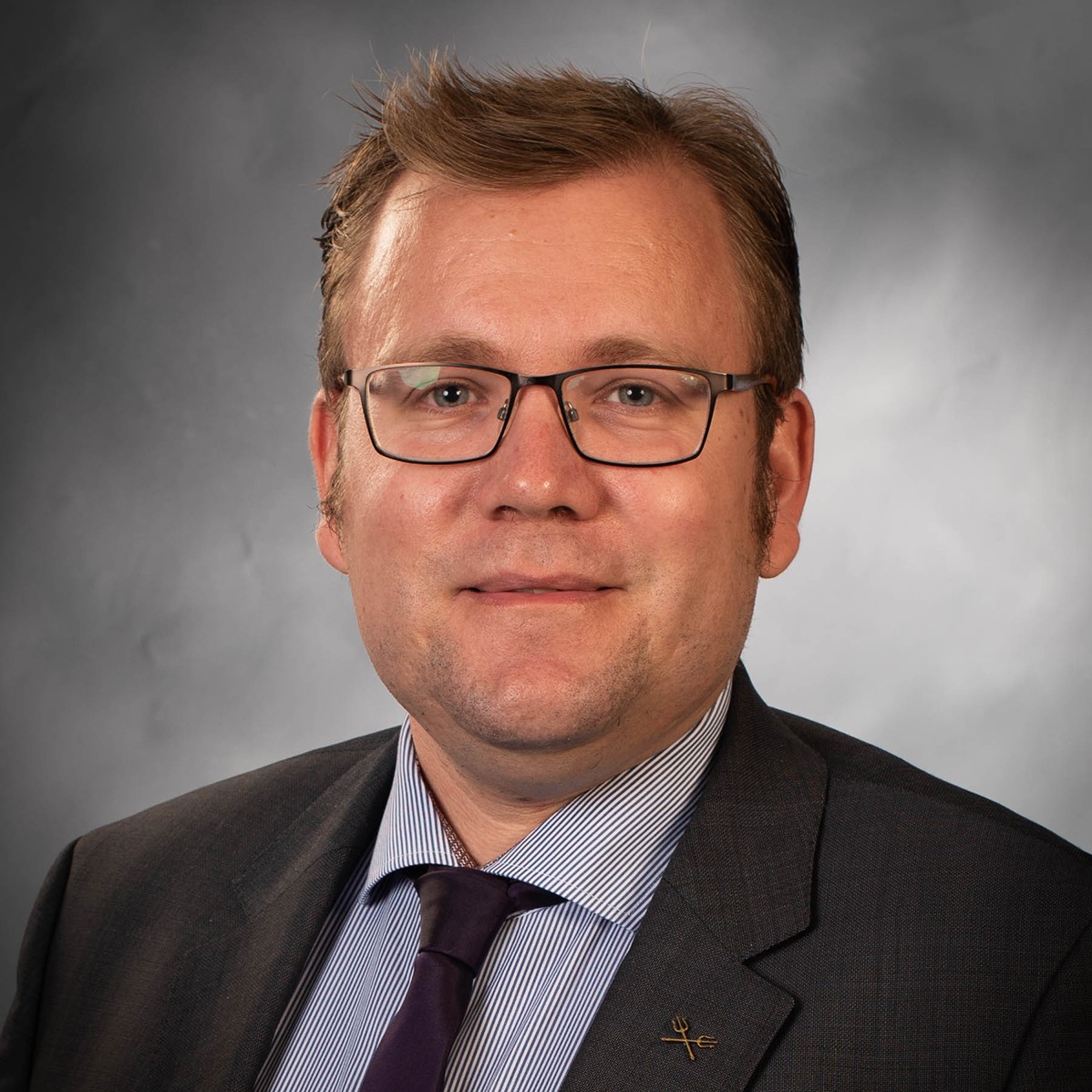
The United States Naval Academy (Annapolis, MD) hosted Dr. Sebastian Bruns of Germany during the 2021-2022 academic year as the inaugural recipient of the Fulbright S-I-R McCain award, established to honor the legacy of the late Senator John McCain. “As we had hoped, Dr. Bruns brought a new depth to our knowledge and teaching of maritime strategy ... connect[ing] with the Midshipmen in his classes and enhanc[ing] their understanding of the importance of other cultures and countries,” writes Commander David Richardson. Dr. Bruns became a cherished member of the community, participating in activities such as pickleball, Trivial Pursuit, and log canoe sailing along the Chesapeake.
Image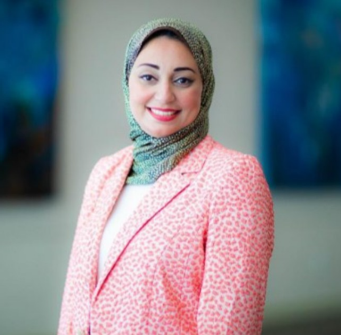
Feminist Egyptian scholar Dr. Mona Ahmed Ashour taught at Santa Fe College, a community college in Florida, during the 2021-2022 academic year. Apart from teaching courses in literature, history, and world religions, Dr. Ashour shared her knowledge of Egypt and Egyptian culture through campus lectures, public community talks, and presentations to K-12 students. “The K-12 students who met with her were enthralled by her presentations. Most were from rural North Central Florida and had never met an Egyptian or an Arab/Muslim woman,” writes Dr. Vilma Fuentes, Assistant Vice President for Academic Affairs and 2022-2024 Fulbright S-I-R Alumni Host Mentor. Dr. Ashour spoke about her life as an Egyptian woman on Santa Fe College’s podcast, Developing Global Citizens.
Image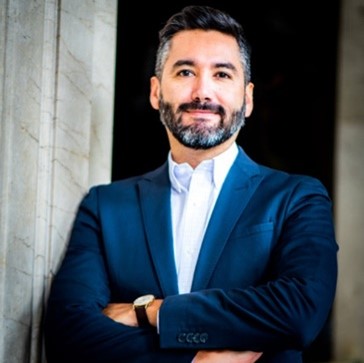
Binghamton University and SUNY Broome Community College in New York jointly hosted Chilean attorney Professor Jaime Godoy during the 2021-2022 academic year. Godoy shared his expertise on human rights and international law in Latin America by teaching courses on Businesses, Human Rights, and Atrocity Prevention and International Human Rights. “Students in particular were really enthusiastic about learning from a non-traditional instructor, with extensive real-world experience in law, international human rights advocacy, extensive experience in international institutions, negotiation and diplomacy,” notes Dr. Max Pensky, I-GMAP Co-Director and Professor of Philosophy at Binghamton University.
Image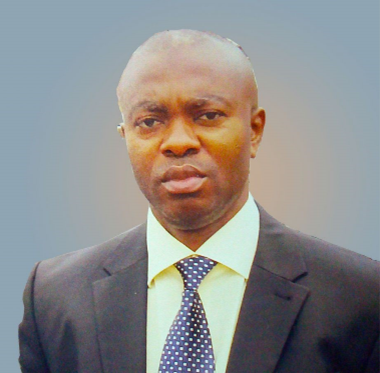
Huston-Tillotson University, an HBCU in Austin, Texas, hosted Dr. Chigbo Donatus Ngige of Nigeria during the 2021-2022 academic year. Along with teaching a two-part course on “How to Do Business in West Africa,” Dr. Ngige provided valuable input to the African Study Abroad Committee. He participated in many community and campus events, such as Black MBA Association of Austin and Austin African Chamber of Commerce events, a “Welcome the Fulbright” session, and a Thanksgiving Dinner with faculty and students. Dr. Ngige’s tenure “enhanced student learning” and “provided the students with exposure to a variety of cultural, religious, and ethnic experiences,” writes Dr. Steven Edmond, Dean Emeritus of the Office of International Programs.
Image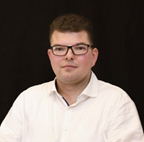
The University of Houston hosted Czech historian Dr. Ivan Pus during the 2021-2022 academic year. In addition to teaching courses on European nationalisms and Eastern European Jewry, Dr. Pus strengthened UH’s connections with the Czech Center Museum of Houston, New York’s Czech community, and UT Austin. Dr. Alexey Golubev, Assistant Professor of Russian history, writes: “For our students, an opportunity to interact with a foreign scholar as a professor or mentor was indispensable ... Dr. Pus’s active community outreach also brought him in touch with many second-, third-, and fourth-generation Czech Americans, giving them a better understanding of the culture of the Czech Republic.”
Image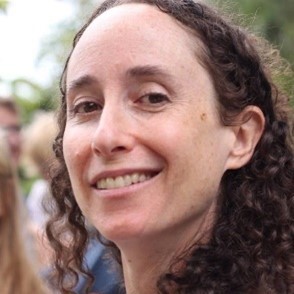
Internationally acclaimed artist Dr. Stacey Sacks of Zimbabwe and Sweden was hosted by Naugatuck Valley Community College (Waterbury, CT) during the 2021-2022 academic year. At NVCC, Dr. Sacks contributed to the International Center for the Arts Festival, created an original theatre production entitled Ubu Toxica! with students, and led Shakespeare and The Wizard of Oz community youth theatre workshops. As Dr. Lisa Dresdner, CEO at NVCC, describes: “While stressing the importance of failure and the value of being inquisitive, Dr. Sacks has empowered our students into identifying, trusting, and giving voice to their internal instincts regarding art, performance, literature, music, and social justice. The legacy of her ground-breaking work will inform the college for many years to come.”
Image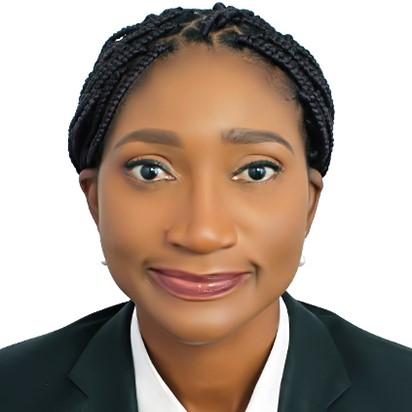
Florida Memorial University, an HBCU in Miami Gardens, FL, hosted Dr. Jemima Amoah of Ghana during the 2021-2022 academic year. As one of the team instructors for International Business, Dr. Amoah helped students "gain significant intercultural skills," connecting FMU School of Business students with University of Ghana Business School students. She also provided valuable input on FMU’s vision of an internationalized campus through the Campus Internationalization Committee. As Dr. Bill Jong-Ebot, Associate Professor, writes, by connecting the University of Ghana with FMU to design study abroad and faculty exchange initiatives, Dr. Amoah “had a long-term impact on our institution.”
Image
Patricia Mejia-Cairo, a chef from the Dominican Republic, taught at Pima Community College (Tucson, AZ) during the 2021-2022 academic year. Patricia “brought her country’s culture and cuisine to our program,” “contribut[ing] a wealth of knowledge through her teaching as well as course development,” writes Jewel Mideau, Associate Director of Hospitality Leadership. She helped develop online courses for PCC’s Baking & Pastry Certificate and led several culinary demos for undergraduate and high school dual enrollment students. Mejia-Cairo participated in campus activities such as a Halloween costume contest, Thanksgiving Pie & Cider, College Signing Day, and Pueblo Del Maíz.
Image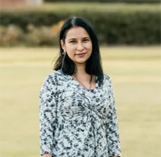
Maria Augusta Zhunio of Ecuador taught at Birmingham-Southern College in Alabama during the 2021-2022 academic year. Zhunio made significant contributions to BSC’s Spanish program, as Professor of Spanish Dr. Barbara Domcekova writes: “The presence of a native speaker of Spanish had an enormous impact on the students; it added variety to the course offerings and brought new energy to our small Spanish program.” Zhunio led many student-facing cultural events, such as “Lunch with the Fulbright,” a campus-wide talk on Ecuador for National Hispanic Heritage month, and several Bailoterapia (a popular outdoor exercise activity in Ecuador) sessions with her husband.
Image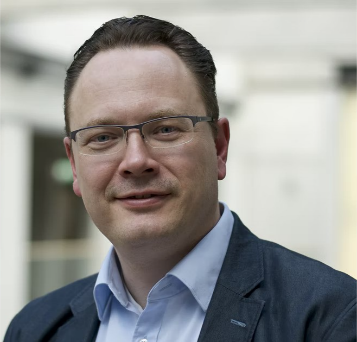
Gallaudet University (Washington, D.C.)—a private university for deaf and hard of hearing students—hosted STEM researcher Dr. Ingo Barth of Germany during the 2021-2022 academic year. Dr. Barth conversed and taught courses in American Sign Language, attending workshops on best practices in pedagogy for Gallaudet students. Dr. Barth met with President Bobbi Cordano and was an invited guest speaker at the 5th anniversary celebration of Streetcar 82, a local deaf-owned brewery. Though Dr. Barth’s visit was brief, he had a meaningful impact, notes Dr. Caroline Solomon, Director of the School of STAMP: faculty described Dr. Barth as “a gem in their midst,” adding “they hoped he could come back as they could see how much more he could contribute to the school and Gallaudet.”
Image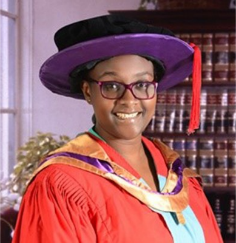
Virginia Tech University and Hollins University in Virginia co-hosted Kenyan public health expert and parasitologist Dr. Isabell Kingori during the 2021-2022 academic year. Dr. Kingori shared her expertise in vector-borne diseases in Kenya and other developing countries, “provid[ing] a valuable international perspective,” writes Dr. Elizabeth Gleim, Assistant Professor of Biology and Environmental Studies at Hollins. Dr. Kingori also helped establish a new study abroad partnership between Hollins and her home institution, Kenyatta University in Nairobi. In the community, Dr. Kingori delivered presentations to researchers at the National Institutes of Health and youth at the Virginia 4-H Teen Summit.
Image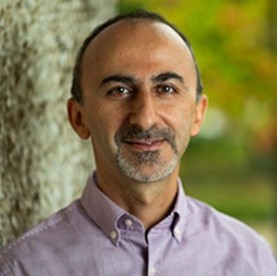
Rowan University (Glassboro, NJ) hosted Dr. Metin Atmaca of Turkey during the 2021-2022 academic year. Dr. Atmaca “contributed to the internationalization of Rowan’s campus" by teaching four courses, including a world history course and popular upper-level course on religious and ethnic minorities in the Middle East. Dr. Atmaca’s teaching helped “sparked [students’] interest in learning more about other cultures, made them less likely to believe in stereotypes about other cultures, and more understanding of different world views,” writes Dr. Corinne Blake, Senior Associate Dean. Outside of teaching, Dr. Atmaca spoke about Turkey and the Middle East at his son’s elementary school, participated in a T-ball team, and attended activities at the local mosque.
Image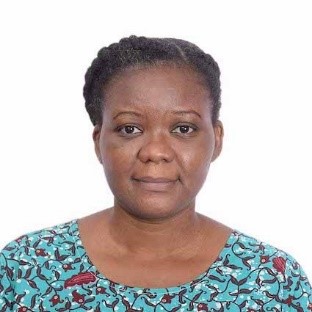
Ghanaian social historian Dr. Cyrelene Amoah-Boampong taught at Mount St. Mary’s University (MD) during the 2021-2022 academic year. Dr. Amoah-Boampong engaged in “refreshingly candid conversation[s]” with students, faculty, and staff on issues such as Mount St. Mary’s DEI initiatives and higher education in Ghana and the U.S. Dr. Amoah-Boampong “engaged with students everywhere she went,” even attending a student field trip to Washington, D.C. Dr. Boyd Creasman, Provost/Vice President for Academic Affairs, wrote enthusiastically of her long-term impact: “I think her greatest contribution will be in her conversations about how to diversify our Core Curriculum.”
Image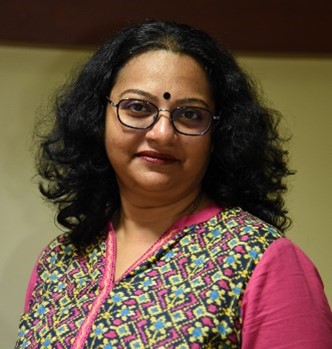
Bridgewater State University (MA) hosted Dr. Medha Bhattacharyya of India during the 2021-2022 academic year. Dr. Bhattacharyya taught several courses on South Asian culture, literature, and film and shared her knowledge of Bollywood films, Indian culture, and education to the campus at large. Apart from teaching, Dr. Bhattacharyya led several cultural enrichment activities in the community, including “work[ing] with senior citizens in cultural enrichment activities on India” through the Senior College and “participat[ing] in many university and community events with local non-profit organizations such as the Rotary Clubs,” writes Dr. Wing-kai To, Assistant Provost for Global Engagement.
Image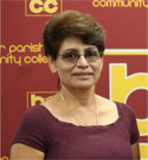
Bossier Parish Community College (Bossier City, LA) hosted Dr. Sandra Carballo of Belize during the 2021-2022 academic year. Dr. Carballo had a meaningful impact on BPCC students, who are “diverse and under-resourced, with few chances to travel outside the region,” writes Allison Martin, Director of Institutional Effectiveness Initiatives. Dr. Carballo’s lectures on Belize’s culture led students to "compare/contrast the cultures [of Belize and Louisiana] using touchpoints from their own community.” Beyond BPCC, Dr. Carballo explored Louisiana, touring local gardens and wildlife areas, eating local Cajun and Creole food, and visiting several smaller towns where BPCC students live.
- Fulbright Scholar-in-Residence Awarded Institutions
- Fulbright Scholar-in-Residence Institutions by Location
Updated: May 22, 2018
Source: Google Map
Fulbright Scholar-in-Residence Institutions by location since 2007
FAQs | Fulbright Scholar-in-Residence Program
- I do not have large networks overseas. How can I connect with an individual scholar to include at the time the application is due?
- Our institution is planning to name a specific scholar - are there specific requirements?
- I am unable to identify a scholar before the application is due. Can I apply without naming a specific scholar?
- My institution already has strong international ties. Are we eligible to apply for an S-I-R award?
- Our institution is interested in hosting a professional from another country, is this appropriate?
- I am a non-U.S. citizen interested in participating as a scholar. How can I apply for the Scholar-in-Residence Program?
- Our institution proposes to bring a scholar who is not in the humanities or social sciences. Is it appropriate for us to apply for an S-I-R award?
- Our institution would like to apply for an S-I-R award and name someone who was recently in the United States on a Fulbright Scholar award. Is this acceptable?
- What are some examples of community engagement?
- What kind of documentation is required in support of community outreach activities?
- What are the criteria for selecting institutions for the S-I-R award?
- Can an institution submit more than one application within the same cycle?
- Which is the most important goal of the program: to serve the institution or to serve the scholar?
- If our proposal is selected for an Award, is the funding provided to our institution or to the Scholar?
- My institution has limited resources. Is cost-sharing required? What can we offer in the way in-kind support in lieu of direct financial support?
- What do the Accident and Sickness Health Benefits for the Scholar cover?
- Is the Scholar-in-Residence Award for teaching only?
- Our institution seeks to bring a scholar to teach foreign language. Is it appropriate for us to apply for an S-I-R award?
- Can our institution apply to host an S-I-R to teach English as a second language or foreign language (ESL/EFL)?
- I do not have large networks overseas. How can I connect with an individual scholar to include at the time the application is due?
Complete the Interest Survey in Fall 2023 for assistance through IIE to connect with contacts in the proposed host country or countries of requested scholars. - Our institution is planning to name a specific scholar - are there specific requirements?
If you request a scholar by name, be specific about the reasons for selecting that particular individual. Relate the scholar's qualifications to the proposed activities, including how the proposed scholar's academic credentials, standing, and English language skills are appropriate for the proposed activities, their teaching/lecturing experience, and in what ways has your institution been engaged with this scholar previously. Within the application, provide the Scholar's biographical information, copy of their CV, and two letters of recommendation, including one from the Scholar’s direct supervisor at their home institution. If selected, the individual scholar will connect with the home country Fulbright office to submit additional required material. A separate application from the individual scholar is not submitted at this time. - I am unable to identify a scholar before the application is due. Can I apply without naming a specific scholar?
Yes. If your application is selected for an award, IIE will coordinate with U.S. embassies and Fulbright commissions abroad to recruit for your institution. Within the application, you will mark “no” to “Are you requesting a specific scholar?”. You will be required to select two countries from within a specific geographic world region from which you would like the scholar to originate; the discipline or field of expertise, theoretical orientation (if applicable), and subjects/issues about which you wish the scholar to be particularly knowledgeable; and the scholar’s preferred qualifications including academic degree level and years of teaching experience. U.S. embassies and/or Fulbright commissions in the relevant countries will conduct recruitment efforts to identify a suitable scholar(s) who fits the desired criteria. When recruitment is concluded, each country nominates 1-2 scholars for review. Once approved by the U.S. Department of State’s Bureau of Educational and Cultural Affairs, materials from potential scholars will be forwarded to your institution for final selection. - My institution already has strong international ties. Are we eligible to apply for an S-I-R award?
Yes, the Fulbright Scholar-in-Residence competition does not exclude institutions with existing international programs or those that have other opportunities to host visiting scholars, but these types of institutions need to demonstrate clearly how the proposed S-I-R will significantly enhance or expand any existing international program, serve the students and the campus, and benefit the surrounding community. Proposals that provide a clear view of the institution’s current internationalization efforts and details how the Scholar-in-Residence contributes to the institution’s short- and long-term internationalization goals will be competitive. - Our institution is interested in hosting a professional from another country, is this appropriate?
Yes, institutions are encouraged to consider not only academics but professionals in the media, government, the arts, and from other fields. Professionals have successfully participated in the S-I-R Program. S-I-Rs can teach courses; assist in curriculum development; guest lecture; develop study abroad/exchange partnerships; and engage with the campus and the local community. They should have had some previous teaching experience and must have the requisite English teaching skills. - I am a non-U.S. citizen interested in participating as a scholar. How can I apply for the Scholar-in-Residence Program?
The Scholar-in-Residence Program allows for U.S. institutions to apply to host a potential visiting scholar. Individual scholars may not apply directly. If you are in contact with a U.S. institution that has expressed interest in hosting a Scholar-in-Residence, encourage them to connect with us at sir@iie.org and connect with your home country’s Fulbright office. In addition, please be encouraged to explore opportunities within the Fulbright Visiting Scholar Program.
- Our institution proposes to bring a scholar who is not in the humanities or social sciences. Is it appropriate for us to apply for an S-I-R award?
While the majority of proposals are in the humanities and social sciences, proposals in all disciplines are welcomed as long as the scholar brings an international and/or comparative perspective to the courses taught, and to the department/ institution. Non-traditional and interdisciplinary proposals have featured scholars in the fields of architecture, urban studies, international studies, environmental studies, women’s studies, journalism, performing and creative arts and other disciplines. Regardless of the discipline, it is encouraged to outline in the proposal how the scholar will add an international perspective to courses in their field and other programs on campus, particularly if proposing a scholar in disciplines such as business or the natural sciences.
- Our institution would like to apply for an S-I-R award and name someone who was recently in the United States on a Fulbright Scholar award. Is this acceptable?
Preference is given to scholars who have not previously served as a Fulbright scholar and has not had opportunities to teach, study or conduct research in the United States for an extended period within the past five years. If you request a scholar with such recent experience in the United States, the proposal must give special justification. Additionally, any named scholar should be mindful of any restrictions that may be tied to their prior U.S. visa (i.e., for J1, the 24-month bar). Reach out to IIE at sir@iie.org if you have questions about a proposed scholar’s eligibility.
- What are some examples of cross-campus and community engagement?
The individual scholar is expected to connect with the broader campus and with the surrounding community, not just the hosting department or academic center. The campus and community engagement piece should indicate: a) in what ways the scholar will engage with students, faculty, and staff across campus such as guest lecturing, student and faculty advising, interacting with clubs and organizations, committee service, campus events, etc., and b), what educational, social, cultural and business/professional organizations, activities and events in the community might be attractive to a Scholar-in-Residence and to which they can contribute. Some examples have included guest lecture series; film series from their home country; visits to local secondary schools; interaction with local media; etc. These should be resources where the scholar can learn from the community and where the community can learn from the scholar, on and off campus. See the Highlights section for examples of prior successful programmatic activities. - What kind of documentation is required in support of community outreach activities?
Provide letters from civic, professional, social, and cultural community organizations, schools and school districts, and other groups or organizations expressing an interest in hosting the S-I-R for substantive public speaking engagements and other outreach activities, demonstrating support for the scholar. These letters can be addressed to the Fulbright S-I-R Review Committee or to your institution and will be uploaded directly into the application.
- What are the criteria for selecting institutions for the S-I-R award?
The primary factors reviewers consider are the potential impact and benefits of the proposed programmatic activities to the institution’s internationalization goals as evidenced by the academic activities, other campus activities, community outreach activities, professional enrichment opportunities for the scholar and the sustainable impact of the S-I-R’s presence and why Fulbright is the right partner to assist your institution in achieving those goals. Visit the Review Criteria tab for further details. - Can an institution submit more than one application within the same cycle?
While an institution may submit more than one application from different departments, only one proposal from the institution will be funded. We recommend applicants speak with their leadership to coordinate cross-departmental needs and efforts to submit a single application. An application from an institution proposing to host a scholar in two different departments simultaneously or for a semester each will be considered, provided that the scholar has the requisite experience and expertise.
- Which is the most important goal of the program: to serve the institution or to serve the scholar?
Service to the institution is the most important goal. Other Fulbright Programs support individual scholars who are selected to pursue their own research and lecturing interests. The Fulbright Scholar-in-Residence (S-I-R) Program is a unique Fulbright Scholar Program initiative that is specifically driven by the goals of U.S. institutions of higher education to enhance internationalization efforts on their campuses. - If our proposal is selected for an Award, is the funding provided to our institution or to the Scholar?
Fulbright grant benefits are provided directly to the individual Scholar, disbursed by IIE and include: round-trip international air travel, a monthly stipend, a monthly allowance for up to two dependents, and initial settling-in and professional allowances. IIE will issue the DS2019 form in support of J-visa sponsorship. For a complete list of grant benefits, please review the “Information for named or recruited S-I-R candidates” resource on the Application tab.
- My institution has limited resources. Is cost-sharing required? What can we offer in the way in-kind support in lieu of direct financial support?
Some higher education institutions are able to provide direct financial support and in-kind support. Others may not be able to do so. Direct financial support from institutions is not required for the Scholar-in-Residence Program (See above for the benefits scholars receive from Fulbright). Host institutions are encouraged to think creatively about ways they can provide in-kind support to ensure a successful experience for the scholar. Some examples of in-kind support include providing housing, access to transportation, airport pick-up/drop-off, on-campus meal tickets, apartment furnishing, professional allowances for scholars to attend conferences, etc. - What do the Accident and Sickness Health Benefits for the Scholar cover?
The U.S. Department of State provides essential accident and sickness coverage for Fulbright Scholars under a self-funded group policy called the Accident and Sickness Program for Exchanges (ASPE). This policy is not intended to cover preventative care such as annual examinations or check-ups. The Accident and Sickness Program for Exchanges Booklet is available at Seven Corners. - Is the Scholar-in-Residence Award for teaching only?
Teaching is central to the S-I-R’s responsibilities, within and across departments and curricula in a variety of ways to enhance or expand existing international programming, develop new world area studies programs, add an international dimension to existing coursework or provide an opportunity for students to learn about a particular world region or country. Beyond that, S-I-Rs are expected to engage with students, scholars, and staff across campus in a variety of ways and to interact with the surrounding community. Scholar teaching responsibilities are limited to a maximum of two courses per semester.
- Our institution seeks to bring a scholar to teach a foreign language. Is it appropriate for us to apply for an S-I-R award?
Proposals that include foreign language teaching must also clearly include teaching on other subjects. ( If you are seeking a scholar to only teach a foreign language, consider applying to host a Fulbright Foreign Language Teaching Assistant rather than the Fulbright Scholar-in-Residence Program.
- Can our institution apply to host an S-I-R to teach English as a second language or foreign language (ESL/EFL)?
Proposals requesting a scholar to teach English as a second language or foreign language are not eligible.
2022-2024 Fulbright SIR Alumni Host Mentors
The Alumni Host Mentors in the inaugural 2022-2024 cohort come from 5 U.S. institutions of higher education in Florida, Illinois, Massachusetts, Texas, and Virginia. Alumni Host Mentors are former Fulbright Scholar-in-Residence (S-I-R) program hosts who have been appointed to serve as mentors to newly selected institutional hosts by providing coaching and guidance. Learn more about our Alumni Host Mentors below.
Andrew Hill – St. Philip’s College (San Antonio, TX)
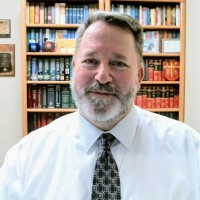
Andrew Hill, J.D. is an Associate Professor of Philosophy in the Social and Behavioral Sciences Department. He received his Doctor of Jurisprudence degree from Loyola University of New Orleans in 1998. He earned a Bachelor of Arts degree in Philosophy and English St. Mary’s University, and his Master of Arts degree in Philosophy from the University of St. Thomas in Houston. He is an advisor for the Philosophy Club and the Ethics Bowl Team, which competes in the competitions sponsored by the Association for Practical and Professional Ethics. In 2017, as part of his work for the Red Cross, he attended the 12th Advanced Seminar in International Humanitarian Law for University Lecturers and Researchers, in Geneva, Switzerland.
At St. Philip’s College, an HBCU and community college, Dr. Hill has hosted two Fulbright Scholars-in-Residence from the United Kingdom (2019-2020 and 2015-2016) and is currently hosting a S-I-R from Georgia (2023-2024).
Kate Edney – Regis College (Weston, MA)
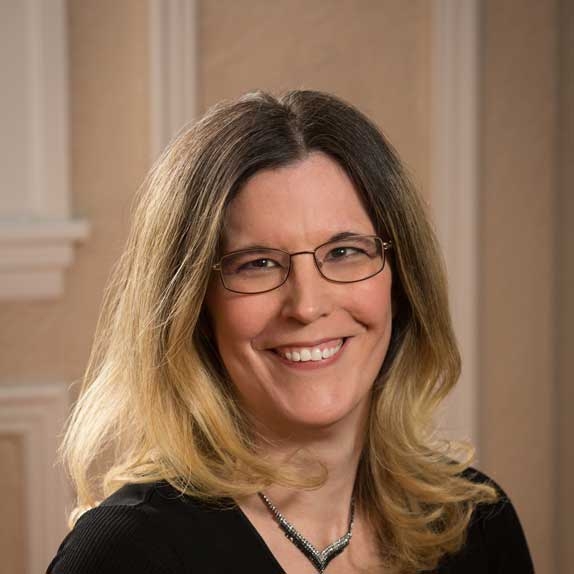
Kate Edney began her career at Regis as an adjunct faculty member in 2010, and has since served in many roles, including Dean of the School of Arts and Sciences for five years. Beginning in October, 2021 she was appointed to the role of Associate Provost of Institutional Accreditation, Assessment, and Research. Edney has written numerous publications, including her book Teaching History with Musicals (2017), and has presented nationwide at theatre, cultural studies, and museum studies conferences. Prior to Regis, Edney was associate registrar at Bowdoin College in Brunswick, ME. She has held numerous teaching roles at Plymouth State University and University of New England. She earned her Bachelor of Arts degree in cultural anthropology at Hampshire College, her Master of Arts at University of Southern Maine-Portland, and Doctor of Philosophy at Michigan State University.
Dr. Edney hosted her first Fulbright Scholars-in-Residence (from Bangladesh) during the 2018-2019 academic year at Regis College, a small Catholic liberal arts college.
Lauren Bell – Randolph Macon College (Ashland, VA)
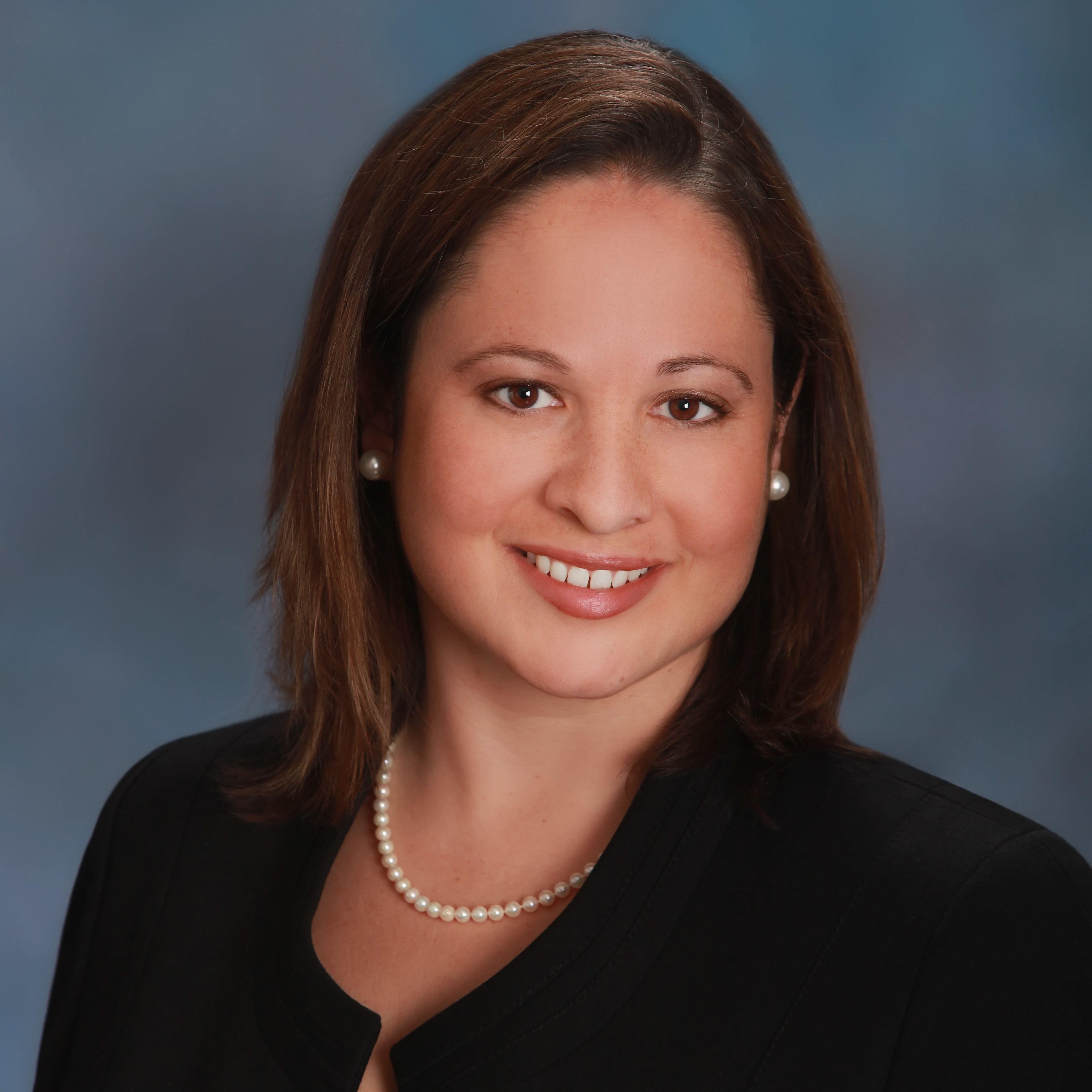
Lauren C. Bell is the James L. Miller Professor of Political Science and Special Assistant to the Provost at Randolph-Macon College. Dr. Bell holds a Bachelor of Arts degree from the College of Wooster (Ohio) and Masters of Arts and Doctor of Philosophy degrees from the Carl Albert Congressional Research and Studies Center at The University of Oklahoma. She is a former American Political Science Association Congressional Fellow (1997-98) on the United States Senate Committee on the Judiciary and a former United States Supreme Court fellow (2006-07) at the United States Sentencing Commission in Washington, DC. Dr. Bell has published single- and co-authored articles in several law reviews and peer-reviewed journals, including the Journal of Politics, Political Research Quarterly, The Journal of Legislative Studies, The Journal of Public Administration Research and Theory, Judicature, and The Wayne Law Review. Dr. Bell joined the faculty at Randolph-Macon in Fall 1999, where she served as Associate Dean of the College from 2007 until 2014 and as Dean of Academic Affairs from 2014 until 2022.
During the 2019-2020 academic year, Dr. Bell hosted a Fulbright Scholar-in-Residence from the Netherlands at Randolph-Macon College, a small liberal arts college.
Richard Johnson – Harper College (Palatine, IL)
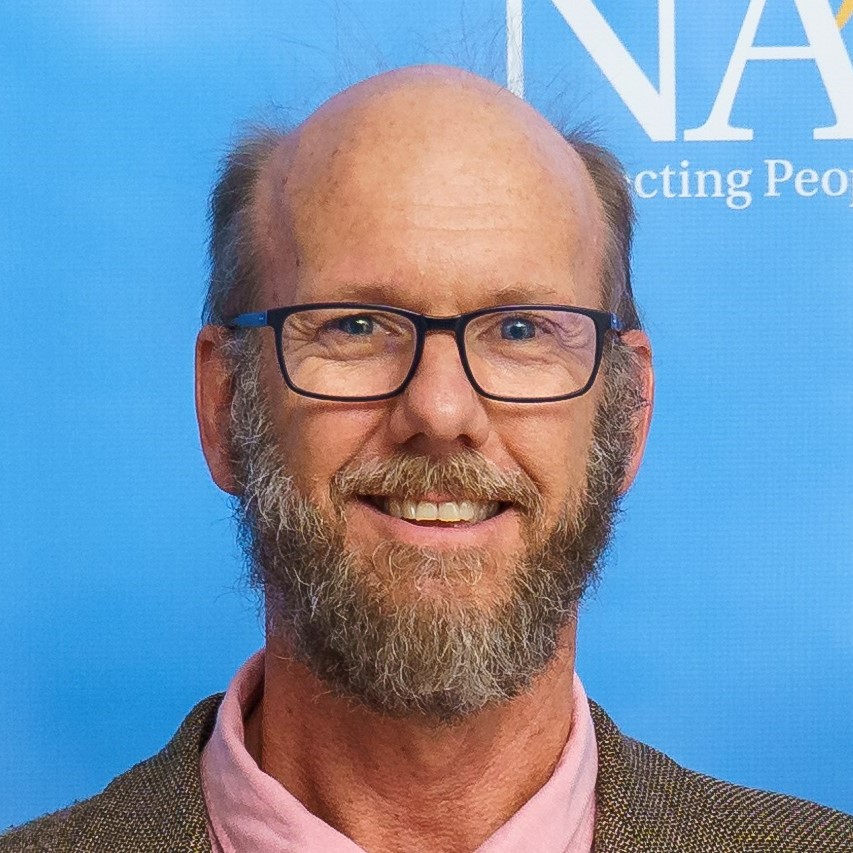
Richard F. Johnson is Professor of English and Humanities, and the Director of the Office of International Education at Harper College. As Director of International Education, he oversees the college’s Global Focus initiative, study abroad program, campus programming, faculty development, and the graduation Global Scholars Distinction. The son of a career diplomat, Rich grew up in Yugoslavia, Bulgaria, Romania, and Brazil. He attended the School of Foreign Service at Georgetown University before serving with the U.S. Peace Corps in Burkina Faso. In his academic career, Rich received a PhD in medieval studies and has published extensively on Anglo-Saxon hagiography, including Saint Michael the Archangel in Medieval English Legend (Boydell & Brewer, 2005). An aficionado of bluegrass music, Rich also plays the 5-string banjo.
Dr. Johnson has hosted two Fulbright Scholars-in-Residence from Uganda (2015-2016) and Costa Rica (2018-2019) at Harper College, a community college.
Vilma Fuentes – Santa Fe College (Gainesville, FL)
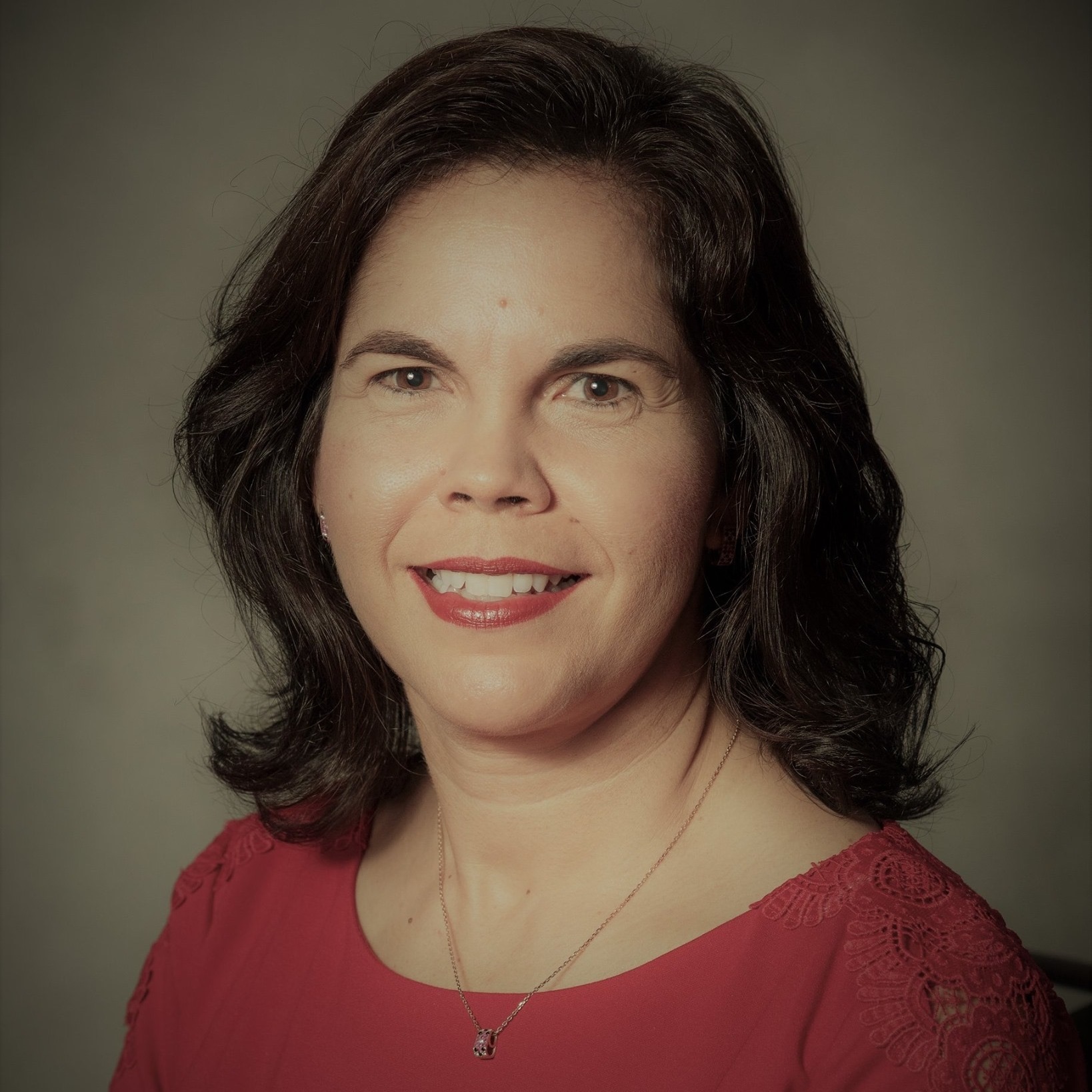
Dr. Vilma Fuentes serves as the Assistant Vice President for Academic Affairs at Santa Fe College where she provides leadership for the college’s international education initiatives, study abroad programs, international partnerships, and international grants. She earned a Ph.D. in political science from the University of Florida in 2003 with a regional specialization on Latin America and an M.A. in International Studies from Florida International University in 1997. Dr. Fuentes has directed a Capacity Building Grant, a 100,000 strong in the Americas grant, an NEH Latino Americans grant, and co-directed eleven U.S. Department of State-sponsored Community College Administrator Programs. Dr. Fuentes has led study abroad programs to Colombia, Guatemala, Germany, Honduras, Poland and Ukraine. She also led the development of an International Studies Certificate at her institution. She helped Santa Fe College start and sustain international cooperation agreements with institutions in China, Brazil, Indonesia, and Ukraine which support student and/or faculty exchange programs.
Dr. Fuentes has been a Fulbright Specialist and has hosted four Fulbright Scholars-in-Residence from Brazil, Egypt, Indonesia, and Ukraine. She has also managed and/or been an active participant in two of the college’s Undergraduate International Studies and Foreign Languages (UISFL) grants.

